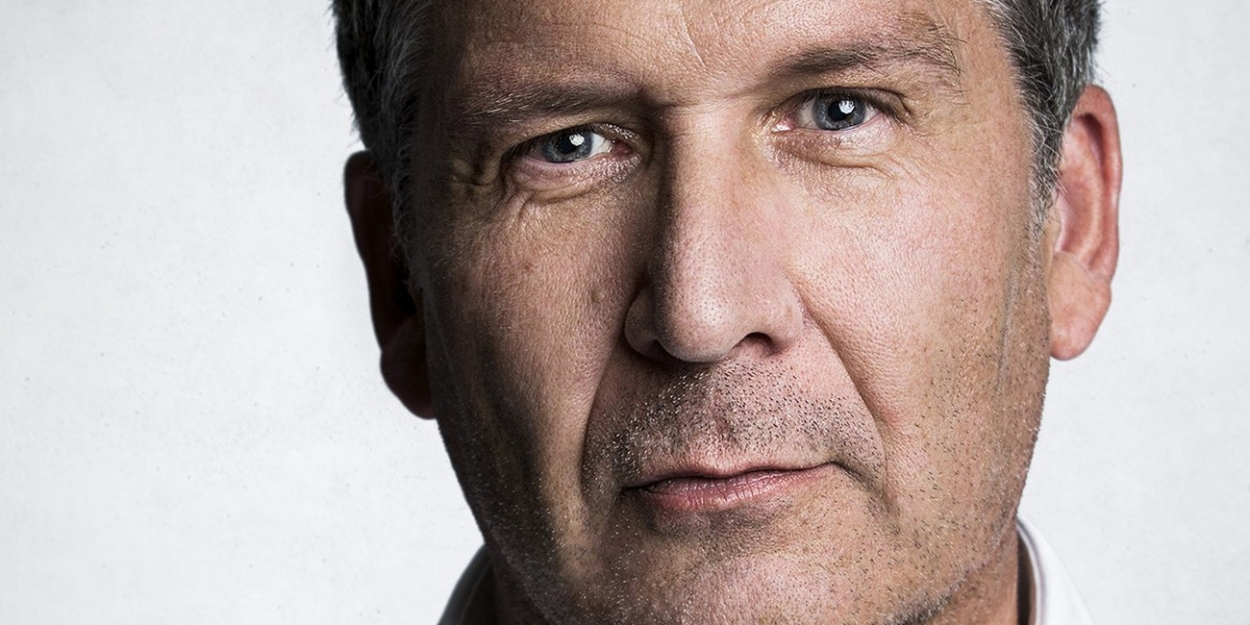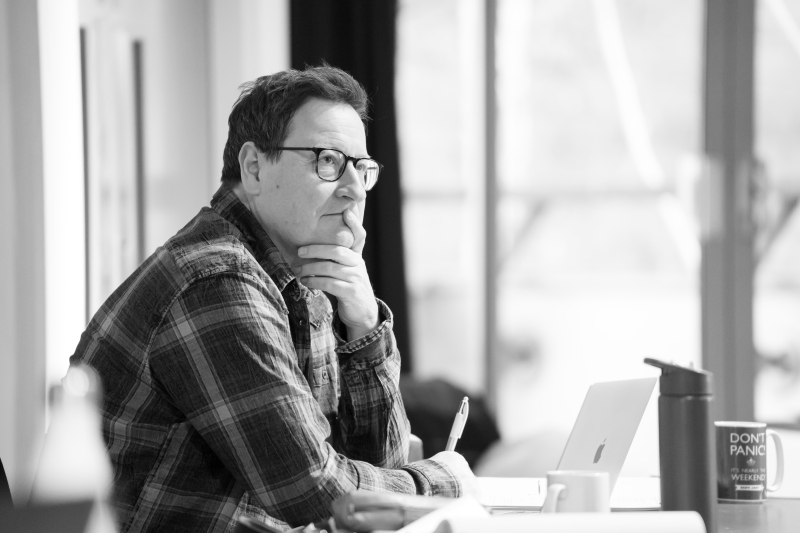Guest Blog: Actor James Gaddas on the Importance of the Writer's Presence in ONE LAST PUSH
'In my own experience, it’s been rare to have the writer in the room, and it’s fascinating'

When I was offered a role in One Last Push, at Salisbury Playhouse, a major selling point, was that it was written by Chris Chibnall. I know Chris’s work from TV – Dr Who, Broadchurch, Life on Mars and more, but until this point hadn’t realised, he was also a highly skilled playwright. To then discover he would be with us in rehearsal for the first ten days, was intriguing.
In my own experience, it’s been rare to have the writer in the room, and it’s fascinating, as we are about to open, to consider just how this affects the process.

Photo Credit: Ash Mills
Back in 1982, I was a spear carrier at the RSC, and one of the plays I worked on, was Edward Bond’s Lear. A reworking of the Shakespeare tragedy. In one sequence, three soldiers approached a house, went in to search and two shots rang out. No soldiers exited. There was a lot of discussion amongst us, as to whether this indicated one had survived. The director, Barry Kyle had a phone call put in to Bond himself - no Zoom, WhatsApp, or immediacy of any sort back then - to ask if it might be changed to three shots. Back came the response – ‘no, two shots it is.’
To this day I cannot recall the reasoning, but had we been fortunate to have Bond in the rehearsal room with us, the question could have been asked, and answered immediately, along with insight into why it was important it was left as written.
In television, especially in a long running series, you get used to making subtle script changes to suit your backstory. I remember an episode of the police series Backup, where the squad was dealing with the aftermath of a violent riot. I had a pub scene with one of the other policemen, where I expressed the horror and fear of having to take part.
It struck me, that given I was former SAS, and every other character was feeling despondent, it might be interesting to explore being excited by the events. At being ashamed that I enjoyed it all kicking off. The writer immediately got on board, and it was an episode I still relish to this day.
On another very well-known TV series, it was explained to me as we went in to rehearse, that the writer was renowned for every word spoken as written. Sure enough, he sat alongside the director, and occasionally leaned forward to whisper, at which point the floor manager would approach and mutter ‘you left out an ‘and’!
So – how would it be during rehearsals for this piece?
.jpg)
Photo Credit: Ash Mills
An absolute joy. Chris understands actors. He writes for us. The character is pretty much there on the page. And being in the room, he was able to recognise if a joke worked or didn’t, if there was too much exposition that could be trimmed back, or if something needed expanding. And if there was a line that we didn’t quite understand – immediate explanation.
On top of this – he was open to us putting our own spin on lines, adding, or taking away.
Within reason!
Do I feel this would be the case with all writers? No. I’ve now had experience of both approaches. But if I was to be asked my preference – writer present or absent – I’d have them in the room for the start of a project every single time.
One Last Push runs at the Salisbury Playhouse until 9 March
Comments
Videos

